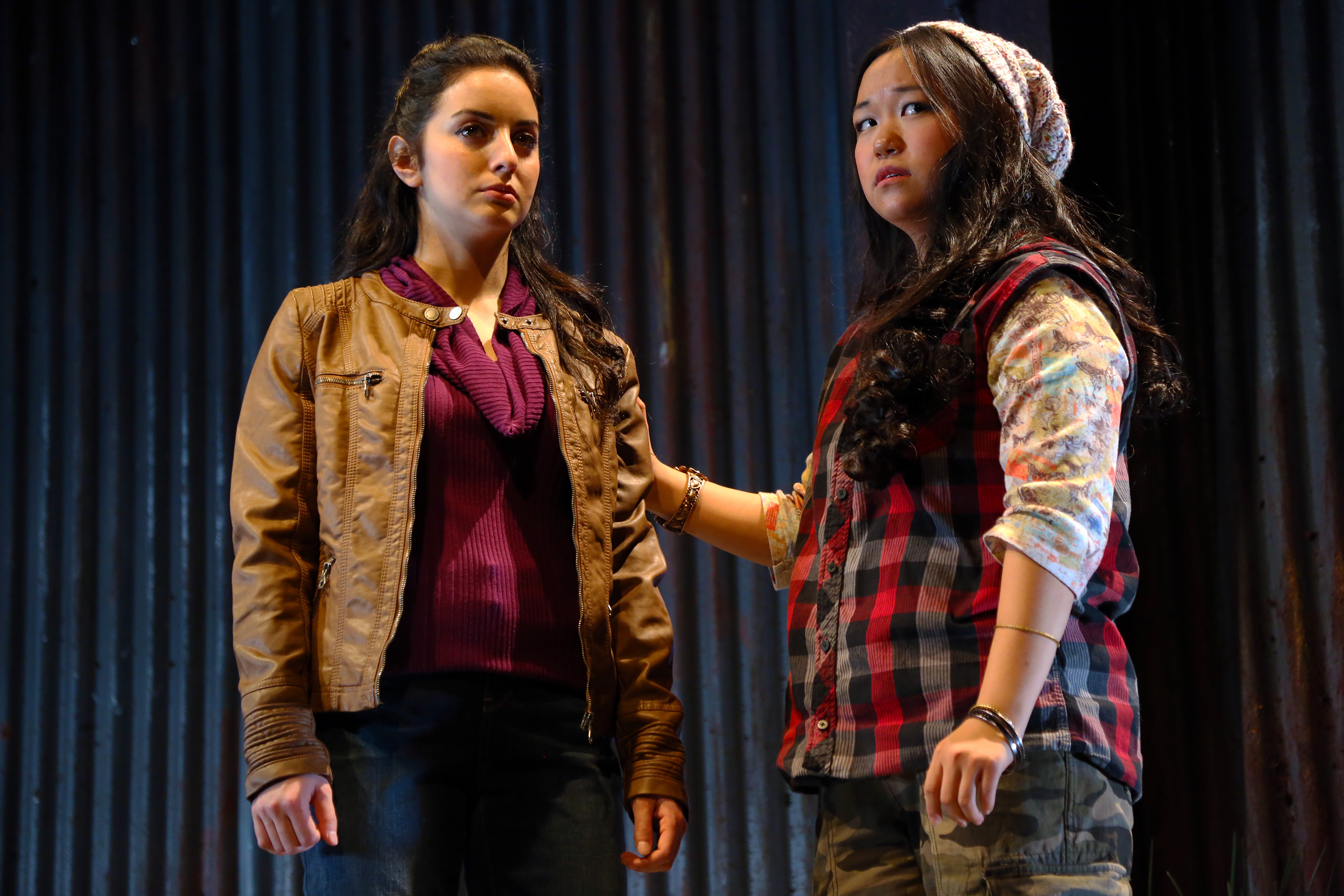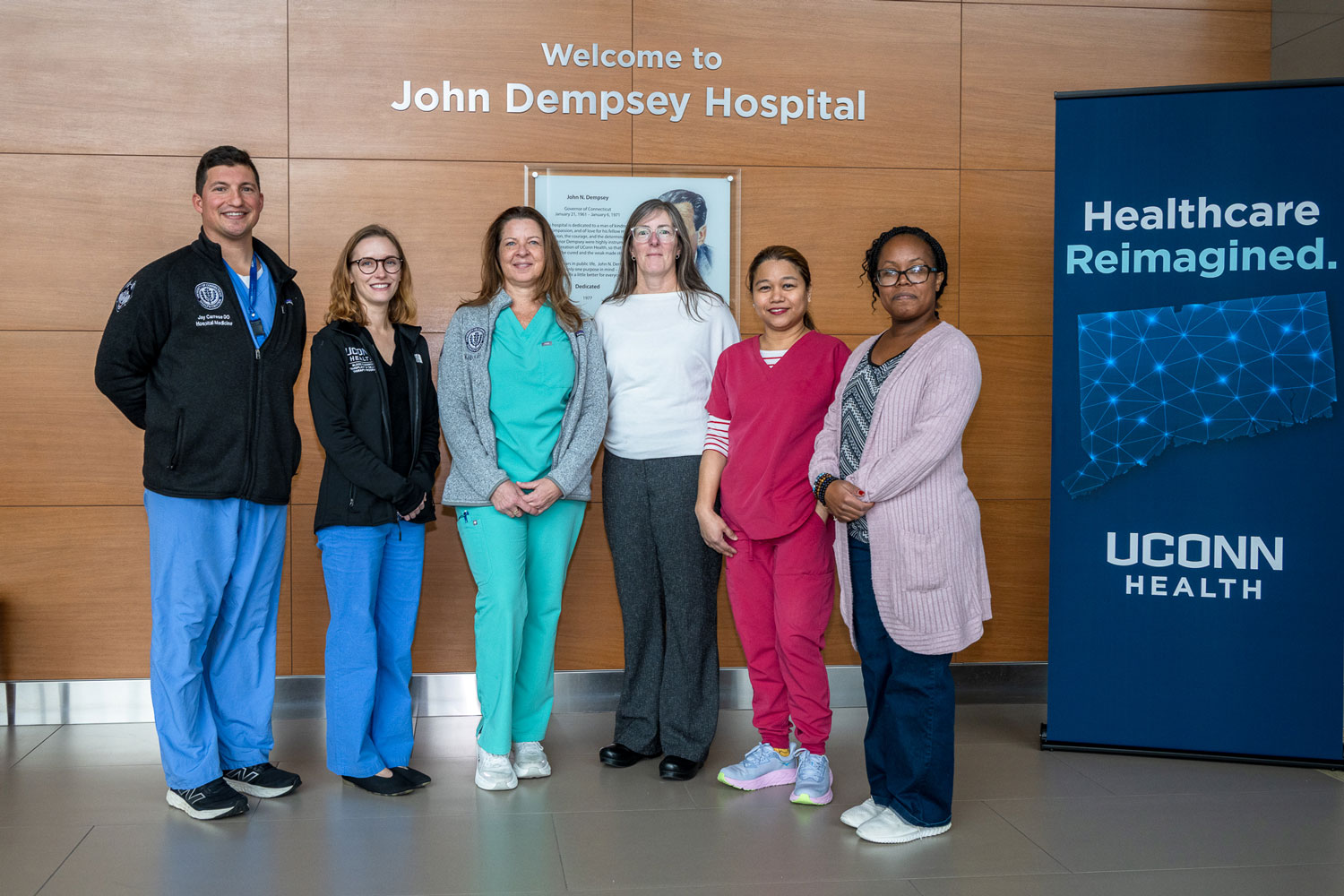In his 1889 essay “The Decay of Lying – An Observation,” Oscar Wilde discusses the intersection between art and life, including the postulate that Art does not imitate Life so much as Life imitates Art.
The passion to build walls that divide us is very real and current in America. … ‘Nuevo California’ is especially timely in its plea for tolerance and change. — Richard Ruiz
The Connecticut Repertory Theatre production of “Nuevo California,” which runs from Oct. 27 to Nov. 6, is a case in point at a time when immigration issues are at the forefront of the 2016 Presidential election.
“Nuevo California,” which was first presented in 2003, is set in 2028, after an earthquake has wiped out Los Angeles and Orange Counties. A Mexican-American pope comes to the region to bless the demolition of the border wall that was built between Mexico and the United States, inspiring murder, mystery, and a budding bicultural romance. Reviews of the original production describe it as a “binational play.”
“While this play is a work of fiction, the passion to build walls that divide us is very real and current in America,” says veteran actor Richard Ruiz ’94 MFA, who directs the CRT production. “Despite the obvious parallels to our current political climate, ‘Nuevo California’ is especially timely in its plea for tolerance and change.”

Soon after rehearsals for “Nuevo California” began in early October, CRT brought together an audience of students, faculty, staff, and members of the community to see a preview of scenes from the play that served as a starting point for a discussion on immigration, borders, and public discourse. The group of approximately 30 guests included a prospective student and her parent.
The conversation, moderated by Anne Gebelein, associate director of El Instituto and a specialist on border and immigration issues, moved from relationships between individuals, to inter-group dynamics on campus, to the meaning of physical and political borders and how the arts can help to explore issues in society.
Students also discussed sense of belonging on campus, and distinguished between group identity and group exclusion. One student talked about how when attending an on-campus party, “you gravitate to people you think are like you.” A student who is considering transferring to UConn said she grew up Afro-Latina in a largely white town and after enrolling in a community college in Connecticut, found solidarity she had never known in finally being surrounded by students who looked like her.
Participants considered how the political climate inflames sensitivities and emphasizes difference. “I think we need to not take ourselves so seriously,” one woman said about how some people react to comments made by public figures in news coverage. “Not everything is a personal attack on you.”
Gebelein said the event was “a wonderful opportunity for actors and audience to explore complex themes of a play before its performance. It allowed us all to prepare ourselves differently for the play, in considering the arguments the script offers and how we understood those arguments and related them to our lives. Border tensions exist everywhere, and the arts help us navigate those tensions.”

Two students in the cast of “Nuevo California” said hearing the reaction of the invited guests to the scenes they performed helped them to better understand the potential influence the production can have on how the audience sees the issues.
“If you watch the protest scene, [the characters are] both saying horrible things have happened to them and their families,” said Shavana Clarke ’17 (SFA), who is in the role of Rebecca, a news reporter. “They refuse to acknowledge the fact that bad things happen no matter who you are and where you come from, and it’s not just because I’m this and you’re that. If there was empathy – human to human – I think a lot would be solved.”
Added Sam Kebede, an MFA student who portrays Albert, aide to the pope: “We had a moment of regrouping before [resuming] rehearsals and we touched base on what had happened and how it reminded us all of the importance of this piece – what we’re doing, why we’re doing it and, most important, who we’re doing it for. I honestly feel we happen to be blessed to be working in a craft that forces us to be empathetic. I do feel it is our duty to spread that, because when you look at other art forms, nothing encourages or demands empathy as much as theater. As performers it is our civic duty to do that.”
“Nuevo California” opens the CRT Studio Works Series for 2016-2017. Performances will be held in the Studio Theatre from Oct. 27 through Nov. 6. For tickets and information, visit crt.uconn.edu or call 860-486-2113.



